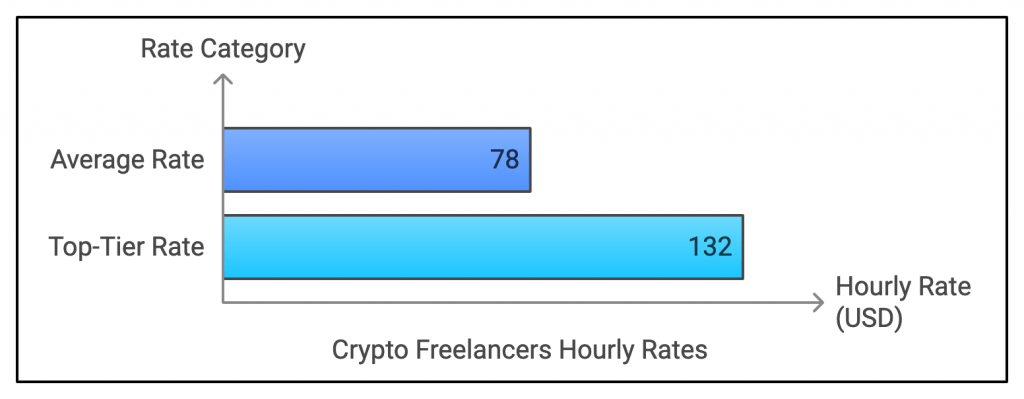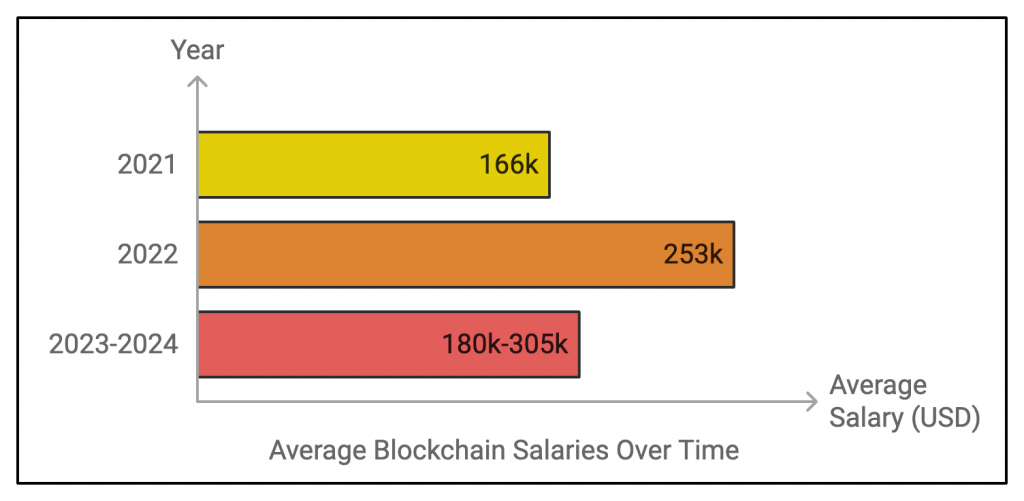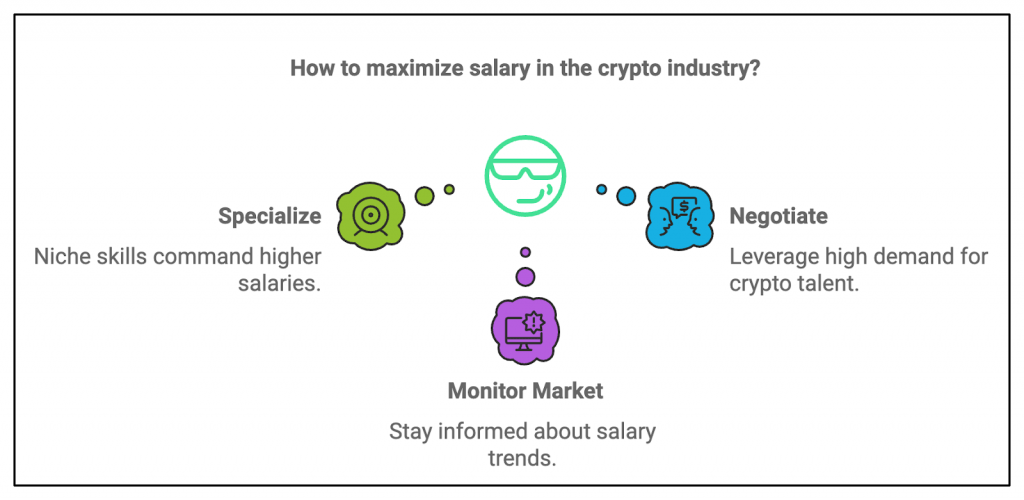Crypto Salaries: Understanding How Much You Can Earn
When you think of working in crypto, what comes to mind? Maybe it’s the excitement of Web3, the potential for decentralized finance (DeFi) to change the world, or perhaps, let’s be honest, it’s the money. Crypto jobs? Yeah, they pay. But how much exactly? Let’s dive into what kind of salary you can expect if you’re working in the blockchain space, whether you’re just starting out or already a seasoned expert.
Breaking Down Crypto Salaries by Role
Crypto salaries can vary as wildly as the market itself. But there’s good news: even the starting salaries are impressive. Here’s a look at what you can expect to earn in different roles within the crypto world.
Developers and Engineers
If you’ve got skills in development, especially in Solidity or Ethereum, you’re golden. The average salary for blockchain developers sits around $120k a year, but if you specialize in something like smart contract development, that number can quickly jump to $180k or higher.
Solidity developers are especially in demand, earning upwards of $200k annually. Companies like Coinbase, Stellar, and Gemini are continually looking for top talent and willing to pay top dollar.
Managers and Executives
For those in managerial roles, the salaries get even more eye-popping. For example, engineering managers in crypto companies can earn anywhere from $130k to $197k annually. Think about companies like Base or Gemini, where leadership roles pay big. If you’re leading a team of developers or overseeing operations, your pay packet will reflect the responsibility.
Analysts and Data Experts
Crypto analysts and data scientists are becoming increasingly crucial as blockchain ecosystems grow. Salaries here might not reach the same heights as developers, but they’re still impressive, averaging around $110k to $200k annually. If you’re into crunching data and figuring out the trends behind crypto markets, this role will pay off well.
Detailed Breakdown of Crypto Salaries by Job Title
Below is a breakdown of salaries for some of the most common roles in the crypto space. These numbers give you an idea of what professionals in various positions can expect to earn.
| Job Title | Salary Range (Yearly) |
| Quantitative Developer | $190k – $300k |
| C++ Developer | $120k – $280k |
| Machine Learning Engineer | $130k – $215k |
| Cryptography Expert | $145k – $230k |
| Senior Developer | $140k – $210k |
| Golang Developer | $140k – $215k |
| Java Developer | $90k – $145k |
| Rust Developer | $95k – $160k |
| Backend Developer | $88k – $150k |
| Solana Developer | $90k – $200k |
| Blockchain Developer | $110k – $180k |
| Solidity Developer | $85k – $160k |
| Front End Developer | $75k – $150k |
| DevOps Engineer | $115k – $170k |
| Python Developer | $100k – $150k |
Hourly vs. Yearly Salaries in Crypto
Not everyone in crypto is locked into a full-time, salaried position. Some roles offer hourly rates, which can be even more lucrative if you’re on a freelance gig.
Hourly Rates
On average, crypto hourly rates are about $78 per hour, but it’s not unheard of for top-tier freelancers to earn up to $132 an hour. These are often developers, engineers, or even consultants offering specialized services for blockchain startups. The flexibility of hourly work appeals to numerous people in the crypto world. Depending on your rates, you can work from anywhere and earn more than in a traditional salary-based job.

Yearly Salaries
Of course, most people in this area are on yearly contracts. The advantage here is stability and benefits, not to mention the potential for bonuses or stock options (or, in this case, crypto tokens). Even at the lower end, a crypto salary usually starts at $80k annually, which is pretty solid for entry-level positions.
Current Salary Trends (2021-2024)
Crypto salaries have been on a rollercoaster over the last few years, partly thanks to the market’s volatility. But despite the ups and downs, the overall trend still looks up.
2021 – A Solid Starting Point
Back in 2021, crypto salaries were already pretty impressive. The average salary for a blockchain developer was around $166k. This was also when we saw the rise of decentralized finance (DeFi) projects, leading to a higher demand for smart contract developers and engineers who could build out complex blockchain ecosystems.
2022 – Boom and Bust
By 2022, things were all over the place. At the peak, some salaries were hitting insane heights – up to $440k in September – but that bubble didn’t last long. By the end of the year, the average salary had settled around $253k. Still, not too shabby for a year that saw a lot of market turbulence.
2023-2024 – Stability with Growth
Fast forward to 2023 and 2024, and we’re seeing more stability. The average salary rises and falls between $180k and $305k, with the highest demand for engineers, data scientists, and project managers. Companies are still paying big bucks for top talent, and even as the market matures, salaries are staying strong.

How Job Demand Affects Crypto Salaries
One of the biggest factors that can push crypto salaries even higher? Demand. The more companies looking for blockchain talent, the better the pay gets. And right now, the demand is massive.
More Jobs = Bigger Paychecks
There’s been a constant boost in the number of crypto jobs posted monthly. In July 2024 alone, 638 new crypto jobs were posted. That’s a considerable number, and companies have to offer competitive salaries to attract the best candidates when the demand is high.
Notably, the number of applicants per job has started to level off. In early 2023, some roles saw over 300 applicants fighting for a single position. Now, the average is closer to 74 applicants per job, so companies are more willing to negotiate higher salaries to secure the right talent.
Remote vs. In-Office Salaries
The shift to remote work has dramatically impacted crypto, as it has numerous industries. These days, 91% of crypto jobs can be done remotely, which opens up enormous opportunities for people worldwide.
Flexibility at a Price?
The great thing about remote crypto jobs is that you can work from anywhere. But does that mean you’ll earn less? Not necessarily. Remote crypto industry workers frequently earn as much, if not more, than their in-office counterparts. That said, some companies offer slightly lower salaries for remote roles but often make up for it with additional perks, like flexible schedules or bonuses in cryptocurrency.
Maximizing Your Salary in the Crypto Industry
If you’re already in the crypto world or considering making the jump, you can maximize your earnings in a few ways.
Specialize in High-Demand Skills
Want to earn the big bucks? Specialize. Whether in Solidity development, smart contracts, or blockchain security, the more niche your skillset, the more valuable you are for employers. Companies will pay top dollar for specialists, so ensure you constantly learn and adapt to new technologies.
Negotiating Higher Pay
Don’t be afraid to negotiate. With the high demand for crypto talent, you have more leverage than you might think. Whether starting a new role or aiming for a raise, be prepared to talk numbers and back it up with data about your experience and the market.
Keep an Eye on the Market
Crypto is volatile, and salaries can fluctuate, just like token prices. Keep track of salary trends in your role and field. If you see a rise in demand, don’t hesitate to make your move and seek better-paying opportunities.

Conclusion
Crypto jobs pay well. Whether starting as a junior developer or leading a team of engineers, there are opportunities to earn a substantial salary. Beyond the paycheck, crypto jobs also offer the chance to work on modern technologies, participate in innovative projects, and shape the future of decentralized finance and Web3. The key is to stay flexible, keep up with the latest trends, and always be ready to capitalize on the next big thing in blockchain.



